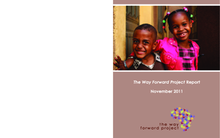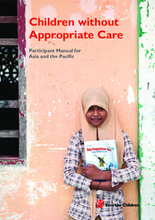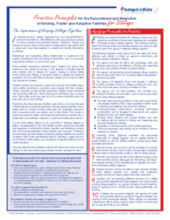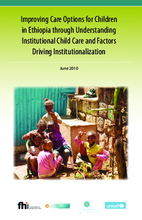Displaying 181 - 190 of 231
The authors of this article carried out a follow-up study of 143 young adults leaving kinship care. They assessed the young adults’ transition to adulthood with interviews and questionnaires. A small part of the sample presented serious problems of social exclusion. Seventy percent had found employment or were in higher education. The youth had frequently suffered the loss of foster carers and lack of support.
Understanding youth transitions from out of home care must include developing countries. A model is presented to facilitate this global integration. The model combines resilience and social capital within a social ecology of support. Use of the model is illustrated by a South African youth mentoring scheme for care leavers.
The Congressional Coalition on Adoption Institute’s The Way Forward Project brought together a group of international experts to discuss opportunities and challenges facing governmental and non-governmental organization leaders in six African nations (Ethiopia, Ghana, Kenya, Malawi, Rwanda, and Uganda) as they work to develop systems of care that serve children in and through their families.
This Prakas is intended to define roles and responsibilities of relevant competent agencies and establish procedures, operational guides, and forms to implement the Policy on Alternative Care for Children.
A retrospective exploratory study on 73 family group decision making conferences for children referred to institutional public services in Kenya to investigate the short, medium and long term conference outcomes on child’s safety, permanency and wellbeing.
This manual offers a training session targeted at policy makers, professionals and paraprofessionals who are already working on programs to support children without appropriate care, or who may begin work in this area. This workshop focuses on children in developing contexts, who require support within their families and those who need an alternative care placement.
This resource offers principles to frame an agency's foster care recruitment and retention practices related to siblings.
Findings and recommendations of the first national study of its kind in Ethiopia to study child care institutions, institutionalized children, and factors driving institutionalization.
The Guidelines for the Alternative Care of Children were endorsed by the United Nations General Assembly on 20th November 2009, in connection with the 20th anniversary of the UN Convention on the Rights of the Child.
Les lignes directrices pour la prise en charge alternative des enfants ont été endorsées par l'Assemblée Générale des Nations Unies, dans le sillage de la commémoration du 20e anniversaire de la Convention des Nations Unies relative aux droits de l’enfant.








